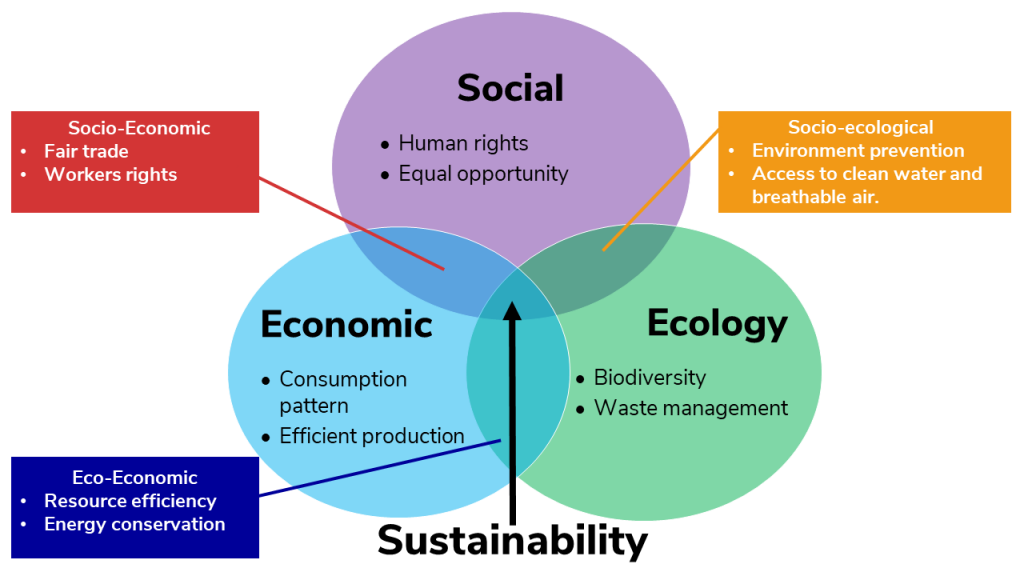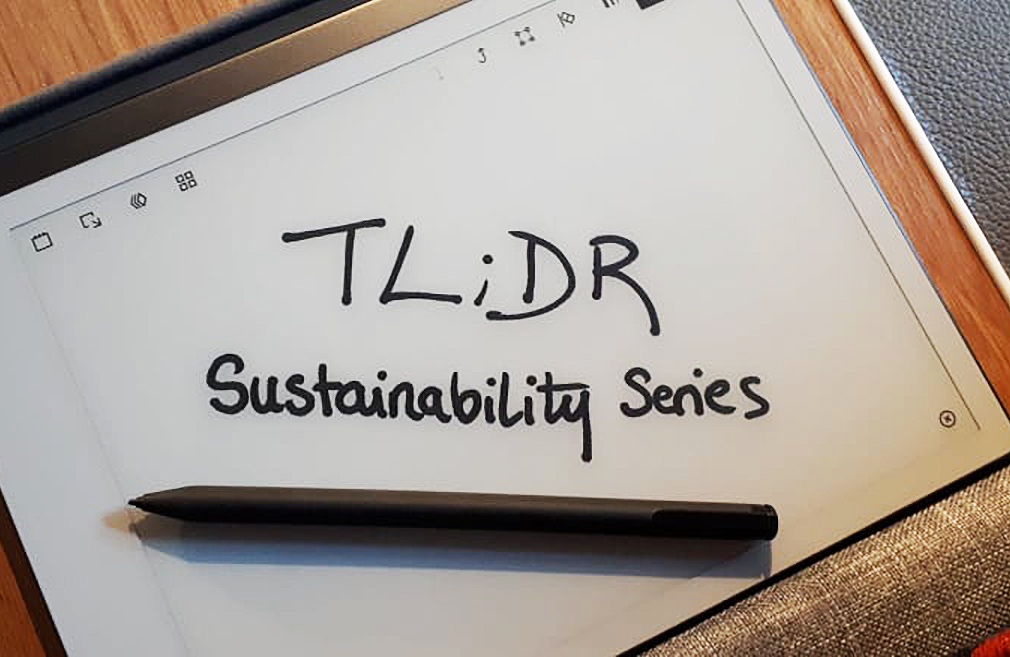We have all seen and heard the word ‘sustainability’ gets chucked about a lot, especially recently. Because of this, its meaning can and has gotten lost a bit. So, to understand the word, we would naturally reach out to dust off the dictionary and find that it means:
“The quality of causing little or no damage to the environment and therefore able to continue for a long time.” (Cambridge Dictionary, 2021)
That still does not fully help us because sustainability is still a vast thing which encompasses many different things. Because of this, sustainability can be split up in different ways. One way of looking at sustainability is breaking it down into the areas of Ecological, Economic and Social.

Ecology
The ecology side of sustainability covers the environment and the impact to the natural world. A lot of people think sustainability is just about environmental impact and hugging trees, and though it’s about much more than this, the environment is an important aspect of sustainability.

Recycling & composting: This is an obvious example; most people are aware of recycling their rubbish. Especially paper because many schools and companies have pushed people to recycle them for a good few years now. Composting is the natural food waste version of recycling, as food scraps are composted to make nutrient-rich compost that is used to grow more food, plants, or flowers.
Economic
This is the financial and business orientated side of sustainability, where businesses, and providers of a service, such as universities, can make changes and adjustments to reduce their impact on the community, local and beyond, as well as the wider world. One example of a way of reducing the effects of a business is through smart growth.
Smart growth refers to the type of expansion a business does and the impact it would have. One topical and current example is happening with the development of housing in Wincheap, where houses are planned to be built on a large amount of green space. This is not sustainable as a large piece of green space would be removed, and an added strain would be put on Canterbury’s infrastructure.
Social
What happens within the area of social sustainability is quite well known, especially lately with many social justice movements within the UK and beyond, but they often are not seen as falling under the umbrella of sustainability, despite being an important part of making a society be sustainable and able to flourish where there is equity for all.

Diversity and Inclusion: It is the inclusion of everyone by understanding differences and making accommodations for those who need them. It is essential for the health and opportunities of individuals and the flourishing of wider communities of all scales.
This is the first part of a bitesize series on ‘TL;DR sustainability’. The next part is going to be on Intersectionality.
And if you got this far down, thanks for sticking with us!
by Max (They/them), SGO Projects Officer #ActingTogether
 Sustainability
Sustainability Felicity Brambling-Wells
Felicity Brambling-Wells 1751
1751


